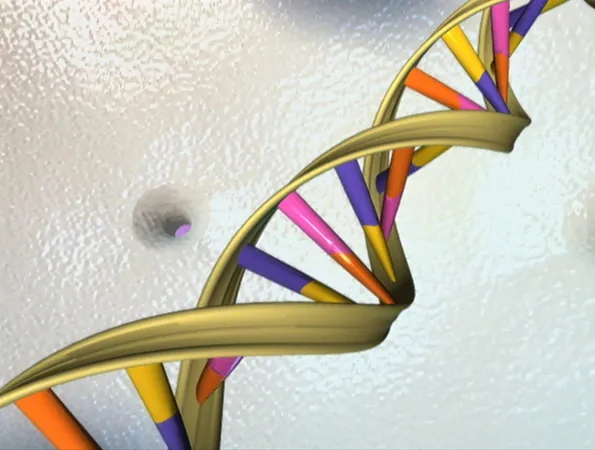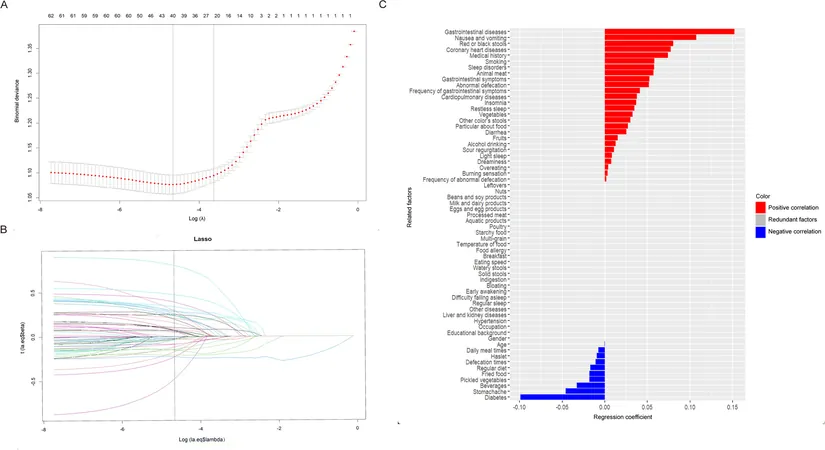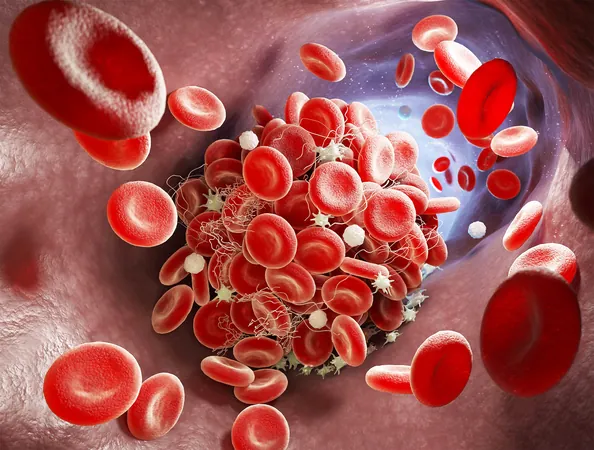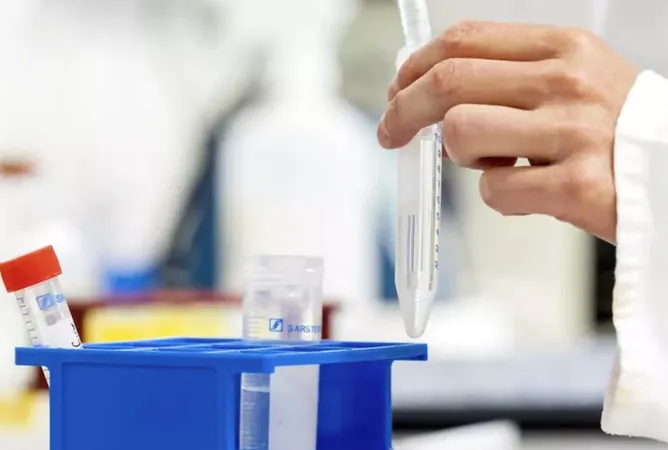
Could 'Mirror Life' Spell Doom for Humanity? Scientists Issue Dire Warning
2025-08-31
Author: Sophie
The Alarming Discovery in Synthetic Biology
What if life forms, crafted from scratch, held the key to our downfall? Kate Adamala, a pioneering researcher at the University of Minnesota, embarked on a groundbreaking yet perilous mission to create a living cell with a crucial twist: all its molecular building blocks would be inverted, forming what scientists are calling 'mirror life.' This endeavor aimed at revolutionizing biotechnology, but it soon sparked a wave of alarm among experts.
The Risk Everyone Overlooked
During discussions with biosecurity experts, unsettling questions arose: what if the cell escaped the lab or infected a human? Adamala and her team hadn't considered the ramifications—until now. Gathering a team of distinguished researchers, including two Nobel laureates, they spent months assessing the potential threats of mirror life. Their conclusion? This synthetic creation could unleash catastrophic and irreversible consequences.
A Threat Unlike Any Other
"We cannot ignore the possibility that a mirror bacterium could behave like an invasive species, wreaking havoc across ecosystems and threatening both plant, animal, and human life," the researchers warned in a groundbreaking report published in 'Science.' Vaughn Cooper, co-author and bacterial adaptation expert, emphasized that the threat mirror cells pose is unprecedented. "This is a risk we cannot afford to take."
What Exactly is Mirror Life?
In our natural world, all living organisms are composed of molecules with specific orientations—a phenomenon known as chirality. For instance, human DNA consists of 'right-handed' nucleotides, while proteins are made from 'left-handed' amino acids. In contrast, a mirror cell would flip this chirality, allowing it to exist and thrive independently.
The Potential for Catastrophe
Adamala's aspiration to create these cells stemmed from their unique behavior; they wouldn't interact with our immune systems as natural cells do. While this might benefit certain medical treatments, it also poses an existential threat. Mirror cells could proliferate unchecked in human hosts, leading to rapid, undetected fatal infections.
Cooper warned that if an individual were unknowingly infected, they might carry the deadly cells home, offering them ample time to multiply before symptoms surfaced. The danger doesn't stop with humans; these cells could devastate entire ecosystems if they escape a laboratory.
An Urgent Call for Regulation
Although creating cells from scratch is currently impossible, researchers have managed to synthesize mirror proteins. It’s believed that with enough resources, complete mirror bacteria could emerge within a decade. However, for now, the scientific community appears united against this direction. Adamala noted, "Virtually everyone deeply involved is now opposed to developing these cells after our findings."
International Response Needed
As the concerns about mirror life grew, nearly a hundred scientists and ethicists convened in Paris to discuss the implications further. Alarmingly, many attendees felt that self-regulation would not suffice. The dialogue is set to continue in upcoming meetings in Manchester and Singapore.
Adamala is advocating for a global treaty to prevent the development of mirror life, akin to the Biological Weapons Convention. While she admits the political hurdles are significant, she hopes that researchers and funding bodies worldwide will recognize the urgent need to halt this research before it spirals out of control.
"We have a unique opportunity to prevent a potential crisis before it’s too late," she cautioned. "Now is the time to act, as this risk isn’t just theoretical—it could soon become reality.”









 Brasil (PT)
Brasil (PT)
 Canada (EN)
Canada (EN)
 Chile (ES)
Chile (ES)
 Česko (CS)
Česko (CS)
 대한민국 (KO)
대한민국 (KO)
 España (ES)
España (ES)
 France (FR)
France (FR)
 Hong Kong (EN)
Hong Kong (EN)
 Italia (IT)
Italia (IT)
 日本 (JA)
日本 (JA)
 Magyarország (HU)
Magyarország (HU)
 Norge (NO)
Norge (NO)
 Polska (PL)
Polska (PL)
 Schweiz (DE)
Schweiz (DE)
 Singapore (EN)
Singapore (EN)
 Sverige (SV)
Sverige (SV)
 Suomi (FI)
Suomi (FI)
 Türkiye (TR)
Türkiye (TR)
 الإمارات العربية المتحدة (AR)
الإمارات العربية المتحدة (AR)